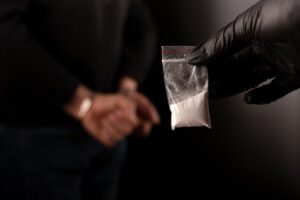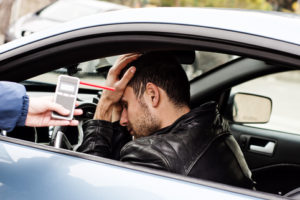
In Texas, a DWI involving a wreck or an injury can land you behind bars for years. A conviction for a drunk driving accident, especially if the crash causes a serious injury or death, carries some of the state’s harshest criminal penalties. Facing a first offense or second offense DWI without a lawyer is risky. Attempting to fight a drunk driving charge involving property damage or injury can affect the rest of your life. If you’ve been charged with a DWI involving an accident, wreck, or injury, our criminal defense lawyers in Fort Worth can help.
We can ensure that you understand the charges pending against you, as well as the potential penalties that come with a conviction. But, even more importantly, we can identify possible strategies to fight the charges or successfully negotiate with the prosecutor in your case. Call the Law Offices of Randall B. Isenberg today to schedule a free consultation: 214-696-9253.
How Is a DWI with an Accident or Injury Defined under Texas Law?
You can read the full text of the Fort Worth drunk driving laws in the Texas Penal Code, Chapter 49. However, we should first discuss how these laws define intoxication.
Texas law defines legal intoxication as a blood alcohol concentration (BAC) of 0.08 or above. However, even if you do not take a breathalyzer or blood test, the arresting officer can deem you to be impaired based on your behavior alone.
To obtain a DWI conviction, the prosecutor must prove three elements:
- You operated a motor vehicle
- You were in a public place
- You were legally intoxicated.
Once the prosecutor has proven you were intoxicated while operating a vehicle in a public place, she must then prove that your intoxication caused an accident or injury.
What If I Damage Property in a DWI Accident?
Texas takes any incidence of drunk driving seriously. If your DWI involves an accident with property damage, you can expect additional penalties.
In addition to the standard drunk driving fines, jail time, and driver’s license suspension, the nature of the property damage will determine what extra or enhanced charges you can expect.
In the best-case scenario, you will face a misdemeanor charge with mandatory jail time, fines, and court costs. You will also lose your driver’s license for up to two years. Upon conviction, the judge may include community service and addiction counseling. Your sentence may also include monitored probation or community supervision. A DWI accident injury lawyer in Fort Worth can help you to mitigate the consequences of the trial and even to win in front of the accusations brought.
You will likely face a charge for reckless damage or destruction, which is a Class C Misdemeanor. If the damage was more extensive or carried a high monetary value, you may face criminal mischief charges. This offense can carry misdemeanor or felony charges.
What Penalties Might I Face for Intoxication Assault Charges?
When a Fort Worth DWI involves an accident or wreck that injures one or more people, you will face a charge called intoxication assault. This offense is a third-degree felony.
However, if the injured person was a law enforcement officer, emergency responder, or firefighter, the prosecution can press second-degree felony charges against you.
For your DWI to warrant intoxication assault charges, the resulting injuries must meet the requirements for serious bodily harm. Serious bodily harm means that the injured person(s) faces the prospect of long-term or permanent disability. Intoxication assault charges are likely if the victim’s injury was life-threatening.
Upon conviction for intoxication assault in Texas, you face:
- A prison sentence ranging between 2 and 10 years (20 if the victim was a first responder)
- Fines up to $10,000 plus court costs and fees
- Community service, supervised probation and substance abuse counseling
The Texas Department of Public Safety (TxDPS) will suspend your driver’s license for up to 2 years. You may also have to install an ignition interlock device on every vehicle you own. The judge may also order you to complete a substance abuse education or rehab program.
Depending on the circumstances, we might be able to plead down to a simple DWI if the injuries were minor or if the victim’s injuries resulted from her own negligence (e.g., not wearing a seat belt).
What If Someone Died in My DWI Accident?
If you cause a fatal accident while driving drunk, the prosecutor will charge you with intoxication manslaughter. If the accident killed a law enforcement officer or another type of first-responder, you will face a first-degree felony charge, which carries a potential 99-year prison sentence and fines up to $10,000.
An intoxication manslaughter conviction also carries community service and supervised probation. You will lose your driver’s license for up to 2 years and have to install an ignition interlock device on your vehicles.
An intoxication manslaughter charge is difficult to fight but we will investigate the accident and exploit any flaws in the prosecution’s case.

How Can I Fight a DWI Involving an Accident, Wreck, or Injury?
Based on the seriousness of a DWI accident or injury conviction, fighting your charges will likely offer you the best hope of staying out of prison.
If you enter a guilty plea, you place yourself at the mercy of the judge’s discretion for sentencing. Because the Texas court system takes a harsh stance on drunk driving – especially intoxicated driving that results in accidents and injuries – do not expect the judge to go easy on you.
This is where having a Dallas – Fort Worth, TX DWI lawyer on your side can help.
A DWI accident injury attorney can assist you through every step of the process, providing support and helping you understand your legal rights. Your lawyer can examine the prosecution’s evidence against you and look for potential areas of weakness.
For example, the arresting officer in a DWI must follow established protocols, even when the incident includes an accident or injury. If, for example, the officer failed to conduct field sobriety testing in accordance National Highway Traffic Safety Administration (NHTSA) standards, it may call into question the officer’s probable cause for ordering chemical tests.
Likewise, if BAC chemical testing failed to follow the established standards, the prosecution may be unable to establish intoxication or impairment.
In either case, you will likely still face charges for your accident. However, if your lawyer can successfully negotiate with the prosecution for a reduction in the charges pending against you, it can significantly reduce the penalties you face.

Call Randall B. Isenberg today.
Because your future depends on the outcome of your case, do not delay in finding a Fort Worth DWI attorney to represent you. The sooner we start working on your behalf, the better your chances will be of a more favorable outcome.
The Law Offices of Randall B. Isenberg provides free consultations and case reviews. Contact us today to speak with a Fort Worth DWI accident injury lawyer: 214-696-9253.










